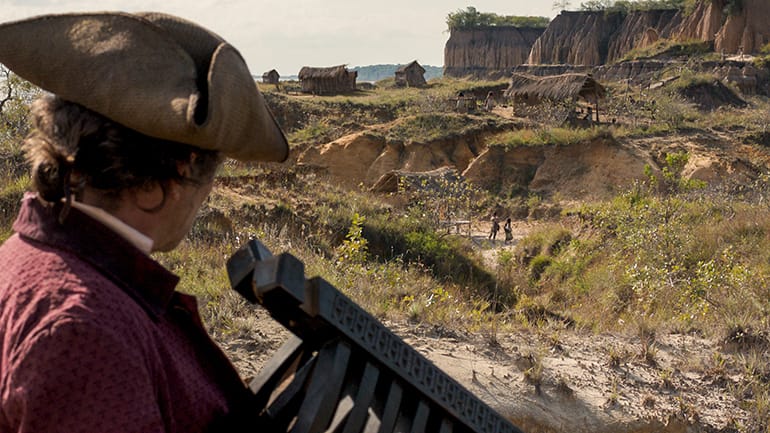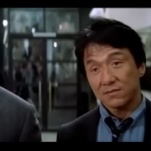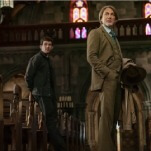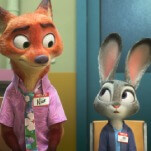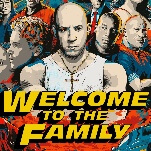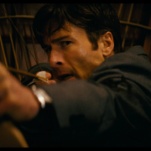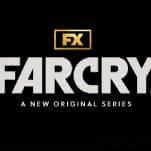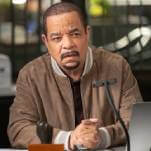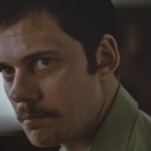Zama Photo: Strand Releasing
Conventional wisdom holds that the best movies of any given year tend to arrive sometime between Labor Day and Christmas—those few weeks annually and unofficially designated as “awards season.” But while the major studios and their indie subsidiaries do tend to hold their big prestige titles until at least early autumn, the truly diligent moviegoer knows that every month on the calendar brings quality cinema. (Yes, even January, provided you’re on Liam Neeson’s aging-asskicker wavelength.) Case in point, we’re halfway through 2018, and there are already enough good-to-great movies to stock a respectable year-in-review rundown. In fact, that’s basically what we’ve assembled below: From Black Panther to Zama, these are the best films that have opened in theaters since New Year’s Day. Rather than ranking the highlights (there will be plenty of time for that come December), we’ve divided them into three tiers: the wide releases and studio blockbusters that opened everywhere; the bigger indie films that slowly rolled out into theaters across the country; and the foreign fare and arthouse acquisitions that popped up at only a handful of venues this winter, spring, or early summer. We’ve also included, to the best of our abilities, how and where you can watch each film. Consider it a halftime guide to everything you need to catch up with, before attentions inevitably drift to this year’s designated Oscar hopefuls and holiday spectacles.
Hollywood hits and multiplex favorites
Ryan Coogler’s across-the-board crowd pleaser boasts a compelling setting, a surfeit of ideas, and a memorable (and large) cast of characters—including two of the best villains in the Marvel Cinematic Universe, the tragically antiheroic Killmonger (Michael B. Jordan) and the unapologetically dastardly Ulysses Klaue (Andy Serkis). Somewhere in the middle of it all is T’Challa (Chadwick Boseman), the proud superhero leader of the secretive Afrofuturist kingdom of Wakanda. Black Panther sometimes strains under its ambitions (e.g., the spotty special effects), but, along with the earlier Creed, it establishes Coogler as a director who treats big-budget franchise entries as personal projects. Blu-ray, DVD, VOD, digital services, and select theaters now. [Ignatiy Vishnevetsky]
“Non-Stop on a train,” the latest collaboration between Liam Neeson and B-movie whiz Jaume Collet-Serra is a dazzlingly contrived and compartmentalized funhouse thriller that casts the towering Irish actor as a debt-ridden insurance salesman (and ex-cop) who becomes the fall guy for a bizarre conspiracy on his commute home. A delirious blend of Hitchcock, Fincher, and post-subprime-crisis middle-class anxiety, The Commuter jumps the rails (literally and figuratively) in its third act. But for much of its running time, it’s the Platonic ideal of a January release: rollicking, screwy, and pissed-off. Blu-ray, DVD, VOD, and digital services now. [Ignatiy Vishnevetsky]
To put aside for a moment the tiresome debates about genre and genre audiences that arrive every summer alongside the latest A24 chiller: Hereditary is a really fucking well-made movie. The acting is excellent across the board, led by a performance from Toni Collette that the Academy would do well to remember next winter. The craftsmanship is impeccable, with inventive camerawork, thoughtful production design, and masterful pacing. And there’s a terrible beauty in the merciless way director Ari Aster intentionally tightens the audience’s psychological screws, before suddenly letting them loose for a nauseating rush of emotional trauma in the shocking final act. Select theaters now. [Katie Rife]
With the long-anticipated sequel to his 2004 animated hit The Incredibles, Brad Bird returns to the retro-future, the Googie dreamland of Batmobiles and Bond cars, gee-whiz and Gerry Anderson, where a few bright individuals fight to keep our sense of wonder out of the clutches of the nogoodniks and the killjoys. Bird’s cranky, exceptionalist vision hasn’t mellowed with the years; the villain this time around is a Mabuse-esque mass-media hypnotist named the Screenslaver. But his mix of cartoony forms and crisp, lively camerawork still makes for spectacular chases and set pieces. The world of his anti-Watchmen zips, shaming most of its live-action counterparts in the superhero genre. Theaters everywhere now. [Ignatiy Vishnevetsky]
Nothing in his previous work behind the camera suggested that John Krasinski was any kind of master craftsman. But maybe the nine sitcom seasons he spent emoting directly to the camera taught the Office-drone-turned-director something about nonverbal storytelling, as he does wordless wonders with this taut suspense contraption about an Earth hushed into silence by blind, echolocating monsters. The sleeper hit of the year, A Quiet Place smuggled some pure visual filmmaking into the multiplex, getting moviegoers to sit still (and, yes, maybe even shut up) for a nearly dialogue-free portrait of a family in mourning. The monsters helped, of course. Blu-ray, DVD, VOD, and digital services July 10. [A.A. Dowd]
A teenager (Tye Sheridan) escapes the dystopian reality of near-future Columbus, Ohio by joining his online friends in a pop-culture-reference-packed virtual world called the OASIS. Adapted from the best-seller by Ernest Cline, Steven Spielberg’s ode to fantasy and nostalgia makes a Pyrrhic case for its muddled central theme (“Reality is the only thing that’s real”), in that its extravagant effects are never as involving as Mark Rylance’s all-too-human performance as the ghost in the OASIS’s machine. But it offers a glut of eye-popping toy-box set pieces (including an extended homage to one of Spielberg’s fellow film titans) from the Hollywood master of the form. It’s all about small screens, but is best seen on a really big one. Blu-ray, DVD, VOD, and digital services July 24. [Ignatiy Vishnevetsky]
Part of what’s irresistible about Leigh Whannell’s Upgrade is how it fashions fresh fun from the spare parts of multiple genres: a little technophobic sci-fi here, a little body horror there, even a small dose of ’80s buddy-cop action comedy sprinkled throughout. The loose-cannon partner role is, in this case, played by a computer chip—the sentient AI system installed into the spine of a paralyzed, bereaved mechanic (Logan Marshall-Green), granting him full use of his limbs again, along with tech support in his noggin and some fully automated kung-fu skills. The results are smart and stupid, serious and silly: a violent B-movie smorgasbord improbably served at a multiplex near you. Select theaters now. [A.A. Dowd]
The major indie releases
Is there no regime so horrifying that Armando Iannucci can’t find hilarity in its foibles? Having already milked the architecture of Middle Eastern invasion for big belly laughs, the Veep creator now locates gallows humor in the fear-clouded Soviet Russia of 1953, when Joseph Stalin had a cerebral hemorrhage, sending his inner circle of cronies into a power-mad frenzy. Allowing Steve Buscemi, Simon Russell Beale, and the rest of a dream cast to lob insults in their native tongues (and accents) only reinforces the parallels between these jockeying backstabbers and the less literally cutthroat variety in Iannucci’s farcical facsimiles of London and D.C. Yes, it all plays a little like a TV pilot. But how many shows would dare treat torturers, rapists, and mass murderers as figures of ridicule? Blu-ray, DVD, VOD, and digital services now. [A.A. Dowd]
Boxy and precise in its framing, First Reformed initially appears as buttoned-up as its clergyman protagonist (Ethan Hawke), who serves at a barely attended upstate New York church of mild historical significance. But Hawke’s Reverend Ernst Toller is also the lead character in a Paul Schrader film, so when he meets Mary (Amanda Seyfried), the wife of a local environmental activist, and clashes with his megachurch bosses, tensions simmer in even the quietest scenes. At 71, Schrader is still grappling with faith, here zeroing in on what practicing faith even means in the midst of a corporate-ravaged environment and personal depression, and Hawke gives that struggle a face with one of his very best performances. Select theaters now. [Jesse Hassenger]
In near-future Japan, the mayor of the fanciful metropolis of Megasaki banishes all dogs to nearby Trash Island (exactly what it sounds like) in a plan to replace pets with cynoid military-industrial robots. Wes Anderson’s dollhouse universe remains whimsically bleak; like The Grand Budapest Hotel, this visually meticulous stop-motion animated feature is in part about the authoritarian takeover of life’s small pleasures, though its central metaphor is lost in one of Anderson’s weakest plots. But despite its flaws, Isle Of Dogs is a feast of forms, filled with jokes, title cards, strokes of technical ingenuity, and striking, Kurosawa-influenced color schemes. Blu-ray, DVD, VOD, and digital services now. [Ignatiy Vishnevetsky]
Lean On Pete is an aging racehorse. Charley (Charlie Plummer) is the scrawny Portland teenager hired to care for him. If that sounds like the makings of a sweet ode to interspecies friendship, you probably haven’t, ahem, ponied up to the harsh truths of an Andrew Haigh movie. Attentive to sharp details of character and environment, the British writer-director of Weekend and 45 Years treats potentially treacly boy-and-his-horse material as an opportunity to explore an America genuinely seized by “economic anxiety” (not an excuse for racist voters, in this case) and how it hardens some hearts and shatters others. Incidentally, anyone who makes it to the end of this deeply sad drama will know how the latter feels. Blu-ray, DVD, VOD, and digital services July 10. [A.A. Dowd]
Leave No Trace
Though it lacks the Ozarks-noir urgency of Winter’s Bone, Debra Granik’s first fiction feature in eight years reaffirms her expertise on the rhythms and hardships of America’s fringe. Working from a novel by Peter Rock, the writer-director dramatizes the true story of a haunted military veteran (Ben Foster) squatting in a Portland park with his 13-year-old daughter (naturalistic newcomer Thomasin McKenzie, in a performance as revelatory, in its more understated way, as the one Granik coaxed out of a young Jennifer Lawrence). But what happens when their solitary lifestyle is threatened? Like this year’s other stark portrait of roughing it in the Pacific Northwest (see directly above), Leave No Trace is refreshingly bullshit-free; it takes no false steps on a very bumpy road. Select theaters June 29. [A.A. Dowd]
Thoroughbreds is a chilly film, framing the perfectly manicured lawns and sterile mansions of its suburban Connecticut milieu with the same dispassionate eye with which privileged high schoolers Amanda (Olivia Cooke) and Lily (Anya Taylor-Joy) view, well, everything. That same chilliness also gives it a certain elegance, as Cooke and Taylor-Joy volley writer-director Cory Finley’s witty, pitch-black dialogue back and forth with deadpan grace. With the late, great Anton Yelchin in a supporting role as a frazzled small-time drug dealer who the girls blackmail into helping them with a murder plot, Thoroughbreds is like the flashing blade of a samurai’s sword—you see the blood, but it takes a moment to realize that those are your guts on the floor. Blu-ray, DVD, VOD, and digital services now. [Katie Rife]
Movies about motherhood tend to focus on the mom’s relationship to her kids. Tully, the latest offspring of the fruitful collaboration between writer Diablo Cody and director Jason Reitman, emphasizes the relationships a mom (Charlize Theron) has with her sense of self and her new “night nurse” (Mackenzie Davis), without sacrificing any of the tenderness or humanity associated with more traditional family stories. Cody is never sharper than when cataloging the physical and psychological endurances involved with parenting, and Reitman is never more focused than when helping to bring those frustrations to life. As great as they are together, this funny, moving film might not work as well without Theron, who is equally at home with darkly wry humor and frayed desperation. Select theaters now. [Jesse Hassenger]
In a world where compassion is considered a sign of weakness, Morgan Neville’s biographical documentary about Mister Rogers’ Neighborhood creator (and Presbyterian minister) Fred Rogers isn’t just refreshing. It’s revolutionary. A practitioner of a brand of Christianity that emphasized love and service to others, Rogers’ mission in life was to let every child know that they and their feelings are important. Through interviews with his colleagues and family members, Neville explores the joys and frustrations of living with the man one of Rogers’ sons calls “the second Jesus Christ,” and the wounded boy inside Rogers who drove his philosophy of radical kindness. In short, it’s great for a cathartic, semi-public cry. Select theaters now. [Katie Rife]
Lynne Ramsay’s dissociative hardboiled thriller has a blood-simple narrative line. Joe (Joaquin Phoenix), a violent loner with serious psychological problems, is hired by a New York politician to rescue his daughter from a shadowy sex-trafficking ring; the wrong people are crossed and bodies pile up. The closest thing to a genre film to come out of Ramsay’s career-long exploration of disturbed behavior and stylistic fragmentation (see: Morvern Callar, We Need To Talk About Kevin), You Were Never Really Here makes no distinction between fantasy and reality. Supported by a typically awesome Jonny Greenwood score, Ramsay’s jarring, cracked direction doesn’t let us inside Joe’s head so much as into his nightmares. Select theaters now. [Ignatiy Vishnevetsky]
Foreign fare and arthouse gems
Abbas Kiarostami’s death two years ago was an immeasurable loss to cinema, but at least he left behind a final gift. There’s virtually no precedent for 24 Frames, which consists of two dozen still photographs (with one exception: Pieter Bruegel The Elder’s painting The Hunters In The Snow, used as proof of concept) that have been digitally manipulated, creating motion from stasis. Throughout his lengthy career, Kiarostami toyed with the viewer’s understanding of what is and isn’t “real” on screen; his final work pushes this notion to an avant-garde extreme, emphasizing artificiality to a degree that interrogates the medium itself. [Mike D’Angelo]
Prolific Korean filmmaker Hong Sang-soo has rarely been more playful than in this sunny trifle, set at (and shot during) the Cannes Film Festival. Kim Min-hee (The Handmaiden) plays a film-industry sales assistant who’s just been fired for sleeping with a director (Jung Jin-young); both parties separately run into Claire (Isabelle Huppert), a cheery amateur photographer who insists that her photos facilitate a sort of exorcism, allowing the person to move past the image of the person they were at that moment. The film runs just a little over an hour, creating a wry artistic manifesto without an ounce of fat or pretension. Select theaters now. [Mike D’Angelo]
Compared to their last film, the genre-bending Spring (2015), Justin Benson and Aaron Moorhead’s The Endless is positively straightforward—but only in the sense that you can comfortably call it a sci-fi drama. The subject matter, a heady brew of quantum physics, time travel, doomsday cults, and callbacks to the filmmakers’ earlier movies, is both convoluted and ingeniously applied, allowing The Endless to intrigue rather than confound. Keeping the whole thing grounded are Benson and Moorhead, starring as brothers who return to the rural California UFO commune where they grew up. There, they discover that while flying saucers may not be real, there’s definitely something uncanny going on in the scrub-covered hills around them. Blu-ray, DVD, VOD, and digital services now. [Katie Rife]
Tracing the lifespan of American democracy via the life and times of Elvis Presley may seem like an ambitious attempt at metaphorical acrobatics. But documentarian Eugene Jarecki makes it work in The King, in which he climbs aboard Elvis’ old Rolls for a road-trip biography, stopping at key places in the star’s life, from Tupelo to Memphis to Vegas. After all, both Elvis and American democracy were considered attractive, rebellious stands against the establishment in their early days, and both became corrupted by corporations and excesses to morph into faint, bloated versions far from their glory years. Famous friends from Dan Rather to Ethan Hawke to John Hiatt add their opinions on the Elvis-democracy allegory, augmented by musical guests underlining the King’s undeniable rock legacy. But as this lifespan metaphor plays out, Jarecki concludes, America is this close to entering that bathroom in Graceland one final time. Select theaters now. [Gwen Ihnat]
Let’s get this out of the way up-front: Aaron Katz’s low-key neo-noir about the thorny friendship between an actress (Zoe Kravitz) and her beleaguered assistant (Lola Kirke) is too subdued for a flashy payoff. But that doesn’t mean it lacks flash; this is Katz’s most visually distinctive film yet, awash in neon and street-light, creating a Los Angeles that gains a kind of clarity and personality at night, even when the characters are throw into a confounding mystery. The movie’s thematic concerns are more subtle, considering Hollywood morality with an enigmatic (and half-comic) flair that will strike some as insubstantial. But its mood and images linger. Blu-ray, DVD, VOD, and digital services now. [Jesse Hassenger]
Appropriately enough for a film about a compulsive liar, Nancy’s true intentions are obscure. Its story arc is simple and streamlined, but it’s as tense as a densely plotted thriller. The characters talk—as people often do in real life—around what they really mean to say, but each guarded half-statement is as impactful as an emotionally charged monologue. That’s partially a credit to the cast, particularly Andrea Riseborough’s layered performance as the title character, a chillingly detached young woman who cold-calls a couple she sees on TV, Leo (Steve Buscemi) and Ellen (J. Smith-Cameron), and tells them she’s their long-lost daughter. It’s also a testament to newcomer Christina Choe’s wonderfully understated script, which won the Waldo Salt screenwriting award at this year’s Sundance Film Festival. Select theaters now. [Katie Rife]
French director Coralie Fargeat’s debut feature accomplishes a seemingly impossible task: redeeming the rape-revenge film. The exploitation subgenre, currently long past its ’70s grindhouse glory days, has been rightly criticized for sexualizing violence against women. But Fargeat’s film cleverly inverts the gender and power dynamics at play by keeping the sexual assault that drives the plot off screen. Instead, we follow our heroine Jen (Matilda Lutz) on a hallucinatory survival journey that transforms her from a lollipop-sucking sexpot to an invincible goddess of revenge—and her attackers from macho alpha males to naked, vulnerable prey. With its aggressively stylized filmmaking and shockingly graphic violence, Revenge is an uncompromising feminist statement that’s also pulpy enough for the midnight crowd. Blu-ray, DVD, VOD, and digital services now. [Katie Rife]
Asking non-professional actors to re-enact events from their own lives doesn’t always work out well—just ask Clint Eastwood—but The Rider successfully straddles the tricky line between awkwardness and authenticity. Injured rodeo cowboy Brady Jandreau essentially plays himself, surrounded by real-life friends and family, in a story about coming to terms with the abrupt, involuntary end of one’s lifelong dream. Director Chloé Zhao (whose Songs My Brothers Taught Me was likewise set in and around the Pine Ridge Indian Reservation) intimately knows both these people and the South Dakota landscape. It all feels true. Select theaters now. [Mike D’Angelo]
Some of the best Westerns are interrogations of national character. The meditative Outback oater Sweet Country occupies that most intrinsically American genre to explore Australia’s own history of racism, oppression, and injustice, all looming as surely as the hot sun over its basically true story of an Aboriginal stockman (Hamilton Morris) hunted and demonized for killing a vicious white settler in self-defense. It’s more mournful than exhilarating (don’t expect much quick-draw cowboy action), though director Warwick Thornton’s intoxicating style—striking imagery, fatalistic flash-forwards—provides its own kind of excitement. [A.A. Dowd]
Even more topical now than when it was released back in April, the latest from Belgian director Lucas Belvaux (Rapt) tackles populist xenophobia in France, imagining a scenario in which the country’s far-right party (fictionalized here, but featuring an obvious stand-in for Marine Le Pen) recruits a previously apolitical and fundamentally compassionate nurse (Émilie Dequenne) to run for public office. The film was hugely controversial at home, in large part because of how savvily it depicts the way that politicians use dangerous extremists as cover while simultaneously deceiving supporters about their true intentions. [Mike D’Angelo]
Raw emotions fuel Matthew Newton’s uncommonly clear-eyed drama, which follows the struggles of two very different women: an idealistic, somewhat naïve lawyer (Emma Roberts) and a self-destructive ex-con (Julianne Nicholson) fighting to regain control of her life and custody of her son. Their stories inevitably connect, but not in the rah-rah way that one might anticipate; Who We Are Now respects the burdens entailed both by who we were then and by who we hope to become, providing empathy and insight but no easy answers. Only the film’s low profile will keep Nicholson out of the Best Actress race. [Mike D’Angelo]
“Ready to go and not going” is how Argentine author Antonio di Benedetto described the protagonist of his Zama, a functionary of the Spanish crown stationed indefinitely at a South American outpost. Returning from a nearly decade-long hiatus, writer-director Lucrecia Martel (The Headless Woman) adapts her compatriot’s revered 1956 novel into a bone-dry comedy of bureaucratic paralysis, built around the daily humiliations and frustrations of the eponymous colonialist (a pricelessly put-upon Daniel Giménez Cacho). Plenty of viewers might relate to his itchy impatience. Slow-cinema enthusiasts will find a paradise of formal pleasures in Zama’s Paraguay purgatory. Blu-ray, DVD, and digital services August 7. [A.A. Dowd]
